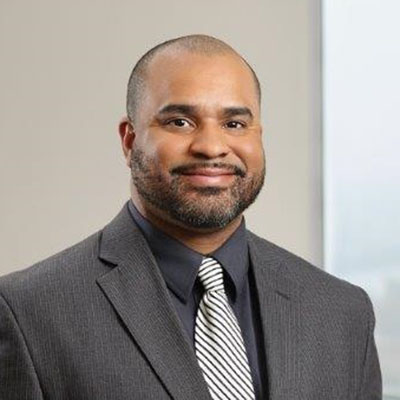Authors:
 James G. Ryan Member, Bailey | Cavalieri |
 Jameel S. Turner Member, Bailey | Cavalieri |
Over the past 15 years, keeping pace with the Delaware enforcement model, most states have stepped up their unclaimed property enforcement programs with the dual purpose of increasing holder compliance and generating revenue to meet budget shortfalls. As the number of active audits have increased, so have the number of holders that have been willing to challenge unlawful audit tactics employed by auditing states and their designated third-party auditors. In addition, after the adoption of the Revised Uniform Unclaimed Property Act (RUUPA) by the Uniform Law Commission (ULC) in July of 2016 and the Temple-Inland v. Cook decision issued that same summer, many states took to amending their unclaimed property laws to address holder concerns about unclaimed property law enforcement methods. While these amendments, in theory, were put in place to address various legal and constitutional concerns raised by holders, the fact of the matter is that most states have not yet succeeded in bringing their enforcement programs into compliance with recent law changes.
Consequently, because many audits are conducted by a single third-party auditor on a "multistate" basis, states and their auditors have failed to address conflicting provisions of state laws as they apply to various aspects of the audit process. One area where there is a glaring deficiency in enforcement methods vis-à-vis state law requirements is with respect to the confidentiality of holder records collected in an audit. Two pending unclaimed property cases, Univar v. Geisenberger and Torsella v. PPL Corp., highlight areas where states' compliance with applicable unclaimed property laws are greatly lagging behind the states' insatiable demands for holder records.
One case that highlights the gap between holder concerns about confidentiality and the state's ability to acknowledge those concerns is that of Univar v. Geisenberger et al., C.A. No. 18-1909 (MN) (D. Del. 2018). Univar, Inc. received its Notice of Examination from the State of Delaware in December of 2015 and immediately raised concerns with Delaware and its auditor, Kelmar Associates, LLC ("Kelmar"), regarding the confidentiality of its records. Univar's confidentiality concerns centered around the following provisions of Delaware's unclaimed property law, which were amended in February of 2017 (the "Delaware UPL"):
- Whether the Delaware UPL permits its designated auditor to share a holders' confidential information with another state in a multistate examination and upon what circumstances such sharing of information is permitted;
- Whether the Delaware UPL requires Delaware to enter into written agreements with other participating states before sharing a holder's confidential information; and
- Whether a holder's confidential information could be subject to disclosure under the public records laws of one or more states participating in the audit due to the multistate nature of the examination.
With respect to Delaware's records demands, Univar flatly refused to produce any requested records until its confidentiality concerns were adequately addressed. To that end, for more than 3 years, Univar and Delaware went back and forth in written communications in an attempt to forge an agreement that would allow the audit to move forward. As to each of Univar's confidentiality concerns, Delaware either ignored those concerns or argued that the provisions of state law that Univar believed imposed distinct confidentiality requirements did not apply. During this 3-year negotiation period, the Third Circuit Court of Appeals decided Marathon Petroleum v. Secretary of Finance for Delaware, 876 F.3d 481 (3rd. Cir. 2017), which established clear precedent that a holder who believes an audit demand is unlawful is free to refuse to cooperate with such unlawful demand until such time as the state authority takes "formal steps" to compel compliance with the unlawful demand. In light of Marathon, Univar elected to stand firm in its position that it would not compromise the confidentiality of its records in the face of unlawful information requests.
The parties remained at an impasse until October of 2018, when Delaware issued a subpoena for Univar's records. In response to the subpoena, on December 3, 2018, Univar filed a lawsuit in the Federal Court for the District of Delaware, alleging that Delaware's inability to ensure the confidentiality of Univar's records in a multistate audit constitutes an illegal search and seizure, challenging the enforceability of the subpoena and questioning the retroactive application of the revised Delaware UPL to the Univar audit. Four days later, Delaware filed a competing lawsuit of its own in the Delaware Court of Chancery, alleging that its subpoena was enforceable and that Univar's claims in the District of Delaware were unripe. After some procedural wrangling, Univar's lawsuit in the District of Delaware was stayed to allow the Court of Chancery to determine whether Delaware's subpoena is enforceable. This case is set for oral argument in the Court of Chancery on March 10, 2020.
Torsella v. PPL Corp. 272 MD2019/48 MN 2019 is the second recent case that touches upon the confidentiality of holder records in the unclaimed property audit context, albeit in a different context. PPL received its Notice of Examination from the Commonwealth of Pennsylvania in August of 2017 . As in Univar, PPL was also subject to a multistate unclaimed property audit also conducted by Kelmar. Unlike in Univar, however, PPL initially elected to cooperate to the best of its ability with Pennsylvania and Kelmar, producing over 1,000 pages of data and documents in April of 2018 in response to Kelmar's information requests. Despite PPL's voluminous production of documents, Kelmar and Pennsylvania objected to the format of the records PPL provided because PPL redacted some categories of personally identifiable information ("PII") of its shareholders (account numbers, social security numbers) from the submission. Kelmar and Pennsylvania demanded that PPL provide all of the information that Kelmar requested, including personal information of shareholders, even though such information was not specifically required to be produced under Pennsylvania's unclaimed property law ("PA UPL"). Kelmar's demand for the personal information of PPL's shareholders is related to Kelmar's desire to match PPL's shareholder list up against the Death Master File (DMF), even though such a procedure is not required by any provision of the PA UPL.
While PPL continued to refuse to provide Kelmar with the PII of its shareholders in an electronic format as demanded, PPL made what it believed to be an acceptable compromise; PPL invited Kelmar to come to PPL's offices and conduct an on-site review of the requested records, including the personal information that Kelmar was demanding. Despite the fact that Pennsylvania and Kelmar have conducted on-site reviews for other audit subjects in Pennsylvania, for unknown reasons, Pennsylvania and Kelmar declined PPL's offer to conduct an on-site review.
Instead, similar to Delaware's approach in the Univar case, Pennsylvania reacted to PPL's refusal to produce electronic records in the precise format that Kelmar demanded by issuing a subpoena for PPL's records and filing an enforcement action. In response to the enforcement action, PPL raised a number of defenses to the subpoena, including the fact that the PA UPL did not require PPL to produce records in any particular electronic or hard copy format and certainly did not contain any language that required PPL to produce PII. Moreover, PPL argued that it had made a reasonable accommodation to the Commonwealth's demand for information by offering the onsite review. PPL claimed that it was being subjected to disparate and unfair treatment with respect to the offer of the onsite review because the Commonwealth has recently afforded other audit subjects the opportunity for onsite reviews.
Furthermore, in its response to the Commonwealth's enforcement action, PPL raised arguments similar to those of Univar, alleging that multistate audits subject holder records to the public records laws of some participating states when a single auditor is conducting an unclaimed property audit on behalf of multiple states simultaneously. Because the PA UPL's subpoena power was codified prior to the date that PPL received its Notice of Examination, PPL was unable to raise any arguments regarding retroactivity. The next hearing in this matter is set for March 19, 2020.
Both Univar and PPL highlight situations where a holder's right to keep its own confidential and proprietary information and the PII of its shareholders from being disclosed to third parties has not been respected by state authorities in the context of unclaimed property audits, despite the fact that state laws do not seem to support the states' positions as outlined in the Univar and PPL lawsuits. Moreover, many states appear to be ignoring the confidentiality and public record concerns presented by multistate audits and other state law conflicts of participating states that pervade multistate audits. In the context of an unclaimed property audit, state unclaimed property and public records laws are far from uniform with respect to the confidentiality of audit records collected by a third-party in the performance of a government function. While it is understandable that the states and their designated contingent-fee auditors will stop at nothing to protect the multistate audit model that primarily serves the interests of the states and their auditors, states should take a closer look at how state laws requiring confidentiality of records apply in the context of multistate unclaimed property audits and close these gaps before more holders are forced to protect the confidentiality of their records through judicial intervention.
States and their legislatures should be more thoughtful on issues of confidentiality and take a closer look at the provisions of RUUPA that apply to multistate examinations and amend these provisions prior to codifying the entirety of the RUUPA as some states have done. Such thoughtfulness potentially would avoid the ramifications of hurriedly codifying new unclaimed property laws intended to make the unclaimed property audit process more uniform from resulting in situations where a state's unclaimed property audit enforcement methods are not in compliance with its own statutes, as exemplified in Univar and PPL.